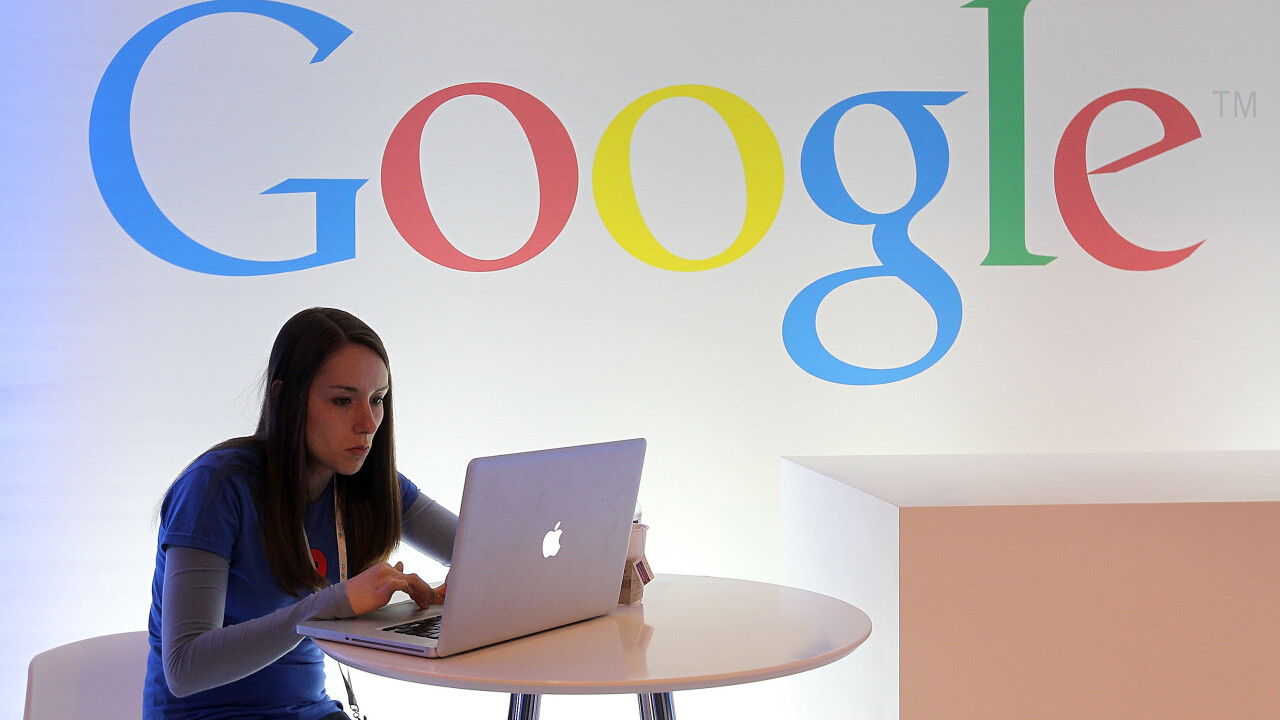
Google is not content with allowing Facebook and Twitter dominate the social network space. Today, the company announced the release of its Google+ Sign-In service, offering developers the opportunity to integrate Google+ into mobile and Web applications. In honor of its launch day, Google is also sharing that it has 10 partners participating in this initiative, including Banjo, Fancy, Fitbit, OpenTable, and Shazam.
Some might think that Google may have lost its mind and that it already has the ability to authenticate logins using Google Accounts, but in this case, they would be wrong; Google+ Sign-In offers more features, beyond a simple log in. Its focus on Google+, the company’s nascent social network that claimed 235 million active users in 2012, could be in its favor.
The Pitch
The first major feature release on the Google+ platform, the sign-in service sets out to help make it “simple” and secure to connect across mobile and the Web.
Simplicity and security come first
As Google tells us, the Sign-In button operates very similar to other services where you click/tap on the button and authenticates using your Google account. If you have enabled two-factor authentication, it will take you through that process.
Afterwards, you can review the Google+ permissions listed which highlight whether you grant the app or site permission to see your name, basic information, and your friends. Additionally, you can opt in to display your email address and or allow people in your Circles to know that you use the app. After everything has been validated, you will move forward in the process and be logged-in to the app but with a tie-back to Google+.
Creating a unified desktop and mobile experience

One advantage of using the Google+ Sign-In feature is the tie-in between the desktop and mobile environment. As Google tells us, when a user signs in through a browser and they’re on an Android device, it will prompt them to download the app, which should help lead to more installations. So if you happen to be browsing on Fancy using the mobile browser and log in using Google+ Sign-In, the site will know to toss you to the Google Play store to ask if you want to install it (if you don’t already).
This could become noisy for users who don’t wish to use the same apps across all platforms, but it could help developers drive greater total adoption.
Selective sharing over social spamming
Google understands that social networks are more than just posting the latest status update or photo. It believes that it’s all about finding the right time to share. So while your profile will be a chronological journey of status updates, photos, and other content pushed directly from partner applications, in the end, you can specify what’s seen by users — just like how Google+ is now.
Facebook, of course, has similar granular permissions.
Google also wants to be cognizant that it is making information available to the specific friends at the right time and place. Right now, it is limited to just Google+, but the company says that it could be expanded to other products such as Search, Gmail, Google Calendar, or anything else (Google declined to comment further about this).
As an example, I may have gone on a trip to Costa Rica and upon my return, uploaded photos and shared places I visited. By default, these updates will appear on my Google+ profile, but may not appear in my friend’s feed until later when they are looking to plan their Costa Rica trip. Perhaps it shows up later on in one of Google’s other properties.
Interactive sharing, not just viewing
With every mobile app that has Google+ Sign-In enabled, Google says that there are several actions that could be taken and only require one-tap to execute: buy, listen, or review.
Launch Partners
From the onset, there are 10 launch partners, which are Banjo, Beautylish, Fancy, Fitbit, Flixster, The Guardian, OpenTable, Shazam, TuneIn Radio, and USA Today.
We had a chance to speak with Banjo founder and CEO Damien Patton about his involvement with Google+. He says that it was a simple thing for his company to do because it was a way for it to grow its user base and tap into the millions of users on Google’s social network. What’s more, for a mobile-first company, he says one of the hardest thing for the company to do is get adoption and downloads — with the Google+ Sign-In, this now makes things easier.
Starting today, Banjo is releasing an update to its offering and will be rolling out webpages that will display photos and content shared through its service. In order to access them, users will need to sign in to Banjo on the web (a new service) exclusively with Google+. And if the user didn’t have the Banjo app installed, their mobile devices would prompt them to download it.
All in all, Patton tells us that it took less than two weeks to get everything working and ready for the launch.
Launching globally
Google says that it will be launching its new sign-in service globally over the next couple of days. It will be available for iOS, Android, and Web apps.
As for the older Google Accounts login process for third-party apps, the company says it will continue that for a while in conjunction with this new Google+ Sign-In, although it will be encouraging developers to switch over and use the the Google+ one moving forward.
➤ Google+ Sign-In developer resource
Photo credit: Justin Sullivan/Getty Images
Get the TNW newsletter
Get the most important tech news in your inbox each week.








